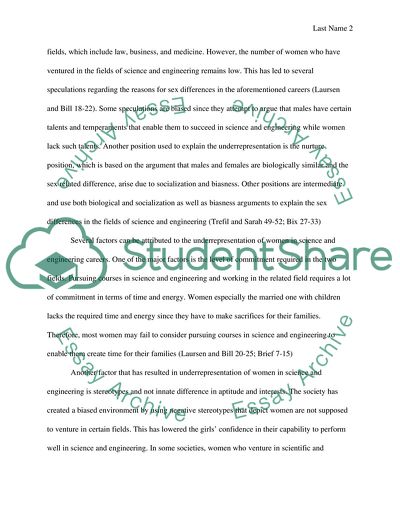Cite this document
(“Disagree that the underrepresentation of women in science and Research Paper”, n.d.)
Retrieved from https://studentshare.org/gender-sexual-studies/1613674-disagree-that-the-underrepresentation-of-women-in-science-and-engineering-is-the-result-of-innate-differences-in-aptitude-and-interests
Retrieved from https://studentshare.org/gender-sexual-studies/1613674-disagree-that-the-underrepresentation-of-women-in-science-and-engineering-is-the-result-of-innate-differences-in-aptitude-and-interests
(Disagree That the Underrepresentation of Women in Science and Research Paper)
https://studentshare.org/gender-sexual-studies/1613674-disagree-that-the-underrepresentation-of-women-in-science-and-engineering-is-the-result-of-innate-differences-in-aptitude-and-interests.
https://studentshare.org/gender-sexual-studies/1613674-disagree-that-the-underrepresentation-of-women-in-science-and-engineering-is-the-result-of-innate-differences-in-aptitude-and-interests.
“Disagree That the Underrepresentation of Women in Science and Research Paper”, n.d. https://studentshare.org/gender-sexual-studies/1613674-disagree-that-the-underrepresentation-of-women-in-science-and-engineering-is-the-result-of-innate-differences-in-aptitude-and-interests.


